Types of mental health problems
There may be some mental health problems that you've heard a lot about, such as depression or anxiety. There may be others you've heard less about, such as schizophrenia or bipolar disorder.
There are also different symptoms we can experience, like hallucinations or self-harming. These can be experienced on their own or as part of a mental health problem.
No mental health problem is worse than another, and they're not a sign of weakness.
Having multiple mental illnesses does not make me any stronger or weaker than somebody with less mental illnesses.
Mental health problems
Mental health problems don't have to be diagnosed by a doctor. But some of us find getting a diagnosis of our mental health problem helpful. For example, if it helps us to access support.
Other people find that their feelings and behaviours (also known as symptoms) may not fit into any particular diagnosis, and that's also okay.
I’ve never felt attached to a diagnosis… I have always taken what is useful from them and forgotten about the rest.
Depression
Depression is when you feel sad, low or tearful for a long time, and stop enjoying your everyday life.
For more information on depression and where to get help, visit the Childline website.
Types of anxiety problems
Anxiety is when you often feel worried or afraid and this stops you from living your normal life. You might also experience panic and panic attacks.
If you're diagnosed with anxiety, you may be given a diagnosis of a specific anxiety disorder, like:
- General anxiety disorder – feeling worried a lot, and finding it hard to stop worrying about everyday things.
- Social anxiety disorder – feeling scared or worried in, or thinking about, social situations. For example, parties or working with someone else.
- Phobias – strong worries or fears caused by specific situations or things. For example, heights, spiders, or being sick.
- Body dysmorphic disorder – having a distorted view of your body, and think parts of it are ‘ugly’, ‘wrong’ or ‘bigger’ than they actually are.
- Obsessive compulsive disorder (OCD) – where your worries also involve having repetitive thoughts and behaviours. For example, checking if doors are locked or worrying that someone's in danger.
- Post-traumatic stress disorder (PTSD) – when something traumatic happens to you and you develop problems with anxiety afterwards. This might be nightmares or flashbacks of how you felt at the time.
For more information and advice on where to get help with anxiety, visit the Childline website.
It took me a really long time to be able to know that I actually have anxiety and know how to handle it. But you've always got to understand that you're not different from anyone else – Beyla, 13
Types of eating problems
Eating problems are when you eat much more or much less food than you need, or have a difficult relationship with food.
The most common types of eating problems are:
- Anorexia – when you stop yourself from eating enough food to keep yourself healthy.
- Bulimia – when you eat a lot of food with no control, then feel bad and do something to ‘undo’ it or make up for it.
- Binge-eating – when you eat a lot of food in a very short space of time, often in private.
For more information and advice on where to get help with eating problems, visit the Beat website.
Schizophrenia
Schizophrenia can affect your thoughts and behaviours over a long period of time. It can include your thoughts or speech getting confused, or seeing and hearing things that others don't.
For more information on schizophrenia, visit the YoungMinds website.
Bipolar disorder
Bipolar disorder is when you experience big changes in mood that can affect your everyday life. You may have both:
- Manic episodes, which means feeling high
- Depressive episodes, which means feeling low
For more information and advice on where to get help, see YoungMinds' page on bipolar disorder.
Personality disorders
Personality disorders are when you find it difficult to change the bits of your personality that can cause you or other people problems. They can affect your relationships, attention, or behaviour.
They are hard to recognise as they have many different symptoms. You often need to have them for a couple of years before your doctor is able to diagnose you.
To find more information about personality disorders, visit The Mix website.
At school I really struggled with my concentration... because of all the compulsions that were going through my brain at the time – Lily, 16
What else might I experience?
We can all experience some feelings and behaviours which can be hard to deal with. For example, getting angry in an argument or panicking before a test.
But when you experience these feelings and behaviours for a long period of time, they could be linked with mental health problems. And it may be time to ask for help.
Anger
Anger is an emotion that's healthy to feel sometimes, but can become a problem when it gets out of control, aggressive or destructive. For more information, see our page on dealing with anger.
Panic attacks
Panic attacks are a way your body can respond to situations you view as stressful. It's part of a natural reaction called the flight, fight or freeze reaction.
This becomes a problem when it stops you from doing things you normally enjoy. You may feel sick or dizzy, start sweating, notice your heart beating faster, or feel like you're losing control.
Hallucinations
Hallucinations are when you sense things that others can't, like hearing voices or seeing things. They're a common type of psychosis, which is when you perceive reality in a different way.
Delusions
Delusions are when you believe something that isn't true and no-one else believes. For example, that you're someone else or that an event is going to take place. Delusions are another form of psychosis, and people with psychosis can see it as a good or bad experience.
Self-harm
Self-harm is when you hurt yourself to deal with difficult thoughts or experiences. For more information and advice, see our page on coping with self-harm.
Suicidal feelings
Suicidal feelings are when you feel like you want to die, or stop living. Although distressing, this doesn't necessarily mean you are planning to take your own life.
For more information on suicidal feelings, visit the YoungMinds website. We also have pages on finding mental health support for yourself and how to support a friend.
What should I do if I'm feeling suicidal?
Any of us can experience suicidal thoughts and it can be for any reason. If you want advice, support, or to talk things through with someone confidentially, find information and a helpline from Papyrus.
It's important to know that you are not defined by your struggles… and that ultimately you are stronger than them.
This information was published in June 2020. We will revise it in 2023.
The quotes on this page are from young people we spoke to while making this information. They've given us their consent to use their quotes in our information. The words, experiences and opinions in the quotes are not related to the young people shown in any of the photographs we use.
References are available on request. If you would like to reproduce any of this information, see our page on permissions and licensing.












